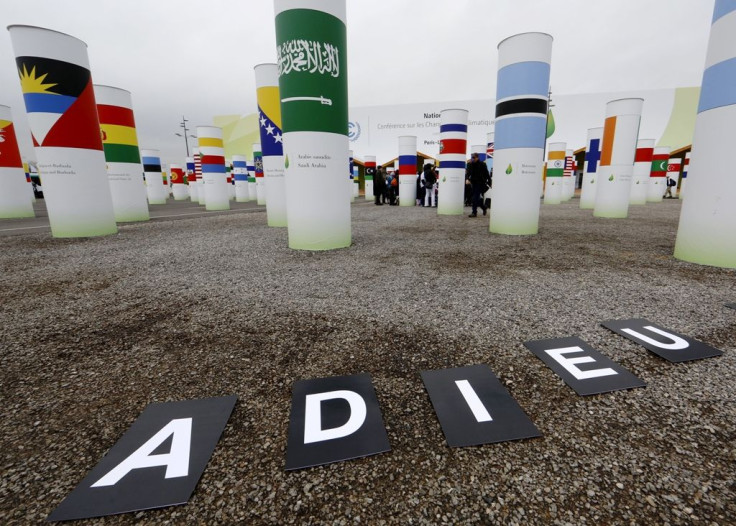Paris Climate Talks: Deal Delayed, But Experts Say It Won’t Hamper Outcome

An agreement at the Paris climate change talks has been delayed by a day, but experts say that it will not hamper the outcome, the Associated Press (AP) reported. The final result of the talks, which was initially scheduled for Friday, is likely to come Saturday evening.
French Foreign Minister and COP21 president Laurent Fabius said Friday that "there is still work to do. Things are going on in right direction," according to the Economic Times newspaper.
Several countries, including China and Saudi Arabia, refused to agree on the climate change deal, forcing France to extend the summit by a day. Diplomats said that China was opposing calls, led by the United States and the European Union, for all countries to review and update their national plans for limiting greenhouse gas emissions every five years.
Gao Feng, special representative for climate change negotiations in China’s foreign ministry, said Beijing will be able to change its climate plans only in mid-2025, because China plans to limit its carbon emissions over the 10 years from 2020 to 2030, Financial Times reported.
Some countries, including those in the EU, have climate plans that last till 2030, but were ready to review them every five years. However, Gao said the accord should mean that “each country can do it at any time” as they deemed proper.
"There are no special differences ... A deal is getting closer. In fact, we have been pushing all kinds of countries, whether it is the EU or others. We wish they can all be more ambitious," Gao said, according to Reuters.
Meanwhile, Saudi Arabia said that it would not agree with the new 27-page draft text urging for the rise in global temperatures to be limited to "well below" 2 degrees Celsius (3.6 Fahrenheit) above pre-industrial levels because it feared the plan could hamper oil production in the kingdom.
However, experts said that the delay in the talks was expected because international negotiators are trying for an agreement that will impact the world economy over the long term.
"This needs consensus," Michael Jacobs, an economist with the New Climate Economy projects, said, according to AP. "There's a lot of negotiating to do," Jacobs, who is also co-host of the talks, added.
Lord Nicholas Stern, economist and climate expert, said an agreement dealing with long-term carbon emissions cutting would play an important role in the business world. "Those making investments now can be much more confident that making those low carbon will be profitable, and making them high carbon carries financial risk," he said, according to AP.
Sam Barratt of advocacy group Avaaz said that it was better to be patient with the talks instead of rushing into any conclusion.
"These talks matter. We would rather they take their time and were patient with the right deal than rush it and get a breakdown ... Getting 200 countries to agree on anything is tough. Getting them to agree on the future of the planet and a deal on climate change is probably one of the toughest pieces of negotiation they'll ever get involved in," Barratt reportedly said.
Diplomats and other top authorities form over 190 countries have reportedly been trying to zero-in on the text of the climate summit deal to reduce man-made carbon emissions.
© Copyright IBTimes 2025. All rights reserved.






















